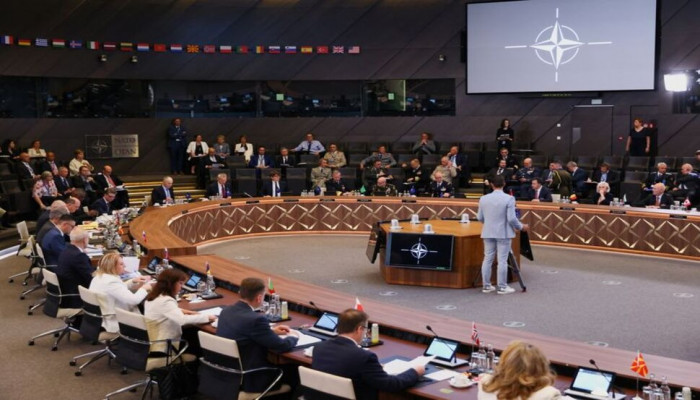NATO defence ministers fails to approve first defence plan since cold war
- In Reports
- 03:53 PM, Jun 19, 2023
- Myind Staff
NATO defense ministers faced a setback as they were unable to reach a consensus on new plans regarding the alliance's response to a potential Russian attack. One diplomat pointed a finger at Turkey, attributing the failure to their actions.
During a two-day meeting in Brussels, NATO Secretary-General Jens Stoltenberg announced that the defense ministers thoroughly examined the plans, which hold significant importance as the first since the conclusion of the Cold War. These plans were given momentum by Russia's invasion of Ukraine. Stoltenberg further expressed that progress was being made, with the ministers edging closer to reaching an agreement on the plans.
According to a diplomat, the decision on the new plans faced a hurdle as Turkey objected to the wording related to geographical locations, particularly concerning Cyprus. However, the diplomat noted that there remains a chance to resolve the issue before the NATO summit scheduled for mid-July in Vilnius.
The regional plans, commonly referred to as secret military plans, consist of extensive documentation spanning thousands of pages. These detailed plans outline the specific strategies and measures that the alliance would undertake in the event of a Russian attack, with the aim of effectively responding to such a scenario.
The formulation of these documents represents a significant shift in NATO's approach. For many years, the alliance did not deem large-scale defense plans necessary, as it primarily engaged in smaller conflicts such as those in Afghanistan and Iraq. Furthermore, NATO had perceived post-Soviet Russia as no longer posing an existential threat.
However, the ongoing and intense conflict in Ukraine, considered Europe's bloodiest war since 1945, has compelled NATO to emphasize the urgency of having comprehensive planning in place well in advance of any potential confrontation with a peer adversary, including Moscow.
Additionally, NATO intends to provide member nations with guidance on enhancing their armed forces and logistical capabilities, acknowledging the importance of upgrading and maintaining readiness levels within the alliance.
“While regional plans were not formally endorsed today, we anticipate these plans will be part of a series of deliverables for the Vilnius Summit in July,” a senior U.S. official told Reuters.
Image source: Reuters







Comments